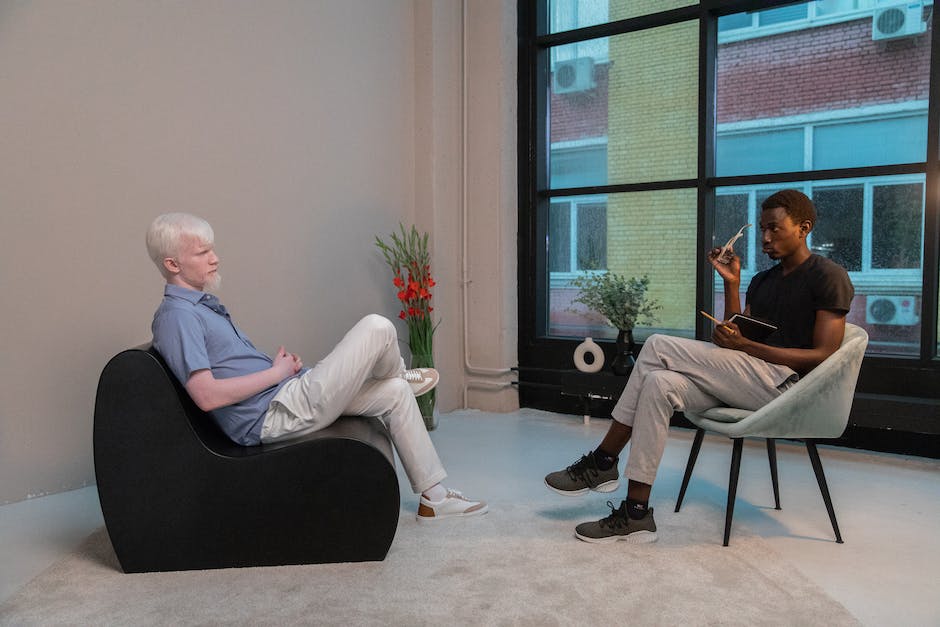Embarking on the journey of higher education is both an exciting and challenging process, one that often involves navigating the important aspect of admissions interviews. This essential element serves as a bridge between potential students and educational institutions, allowing each to assess their compatibility. In this discussion, we will shed light on the varied dimensions of the admissions interview process, understanding its purpose, the emphasis on self-presentation and communication skills, preparing for common questions, and importantly, handling nerves and improving confidence.
Understanding the Purpose of Admissions Interviews
Understanding the Purpose of Admissions Interviews
Admissions interviews are an integral part of the college or university selection process. They primarily serve to offer a more comprehensive view of the applicant than paperwork alone can provide. These conversations allow admissions officers the opportunity to see and assess the potential student’s authentic personality, ambition, and suitability for the institution. The interview plays a critical role in painting a picture of the unique individual behind the grades and achievements listed on paper.
Interviews serve as a platform for the applicants to demonstrate their communication skills, an essential factor in academic and career success. Expressing thoughts clearly and confidently can indicate the learner’s ability to participate effectively in class discussions, collaborate on team projects, and successfully carry out research projects or internships.
A key goal of any admission interview is to understand the student’s passion and dedication to their field of study. Institutions are always on the lookout for students who demonstrate deep enthusiasm and commitment to their chosen subjects. This zeal often indicates a student’s potential to contribute significantly to the field and to the college community.
Admissions officers also aim to assess how well applicants might blend into the institution’s culture. Each college or university has its unique atmosphere, values, traditions, and community. By having a conversation with a potential student, admissions officials can gauge whether the applicant’s perspectives, values, and personality align with those of the institution.
Moreover, admissions interviews are not limited to the institution evaluating the potential student. They also serve as an avenue for applicants to find out whether the school is the right fit for them. This includes creating an opportunity for queries and clarifying any doubts about the programs, facilities, faculty, and other aspects of the university community.
Therefore, it’s crucial to approach the admissions interview as a two-way process: it’s not just about getting accepted into the program, but also about confirming that the institution aligns well with your interests, goals, and values.

Self-Presentation and Communication Skills
Dress for Success
In admissions interviews, first impressions are critical. Your appearance sends a powerful message regarding how seriously you take the interview. Dress professionally, maintaining a balance between comfort and formality. Remember, it is generally better to be overdressed than underdressed. Opt for neutral colors and avoid flashy accessories. Cleanliness and neatness should be a priority—from your hair and clothes to your shoes and nails.
Understanding Body Language
Effective body language is a key component of positive self-presentation. Stand tall with a straight posture to convey confidence and professionalism. Eye contact can suggest attentiveness and respect, whilס a firm handshake can signal assertiveness. Likewise, remain mindful of your facial expressions—aim to look alert, interested, and responsive. Minimize distracting behaviors like incessant nodding, fidgeting, or crossing your arms, as these can subconsciously indicate disinterest or defensiveness.
Hone Your Communication Skills
Effective communication extends beyond your answers to interview questions. Project your voice clearly, ensuring your interviewer can hear you without misunderstandings. Speed is crucial as well—speaking too quickly may suggest nervousness or lack of preparation, while speaking too slowly may convey a lack of enthusiasm. Practice former interview questions, focusing on structuring your thoughts concisely and powerfully. Avoid fillers like “um” or “like”—instead, take a brief pause if you need time to form your response.
Effective Listening Techniques
Listening is a critical yet often overlooked aspect of admission interviews. Show that you respect your interviewer by fully focusing on their words rather than hastily formulating your next response. Nodding at appropriate times can show understanding and acknowledgment. It is also okay to ask the interviewer to repeat or clarify a question if you didn’t quite grasp it—this shows your desire to respond effectively rather than providing a hasty, misinformed answer.
Expressing Your Thoughts Clearly
During an interview, being able to articulate your thoughts and responses clearly is crucial. This goes hand-in-hand with effective listening and communication skills. It’s important to provide detailed responses but avoid rambling. Stay on track and keep your answers related to the question asked. Illustrate your ideas with examples but be concise. It’s also beneficial to rehearse possible questions beforehand, which can ease stress and help you articulate your thoughts more smoothly when it’s time for the real thing.

Preparing for Common Interview Questions
Understanding the Admissions Interview
The admissions interview is a crucial part of the application process for many fields and institutions. Interviewers pose a variety of questions to prospective students to gauge their interest in the field or institution, understand their strengths and weaknesses, and evaluate their long-term goals.
Research the Admissions Interview Questions
Your preparation should start by investigating the common questions asked during admissions interviews. This could include: “Can you discuss your strengths and weaknesses?”, “What attracts you to our institution/this field?” and “Where do you envision yourself in the future?”. Understanding what kind of questions you may be asked will help you prepare thoughtful, tailored responses.
Prepare Detailed Responses
Once you’ve gathered potential questions, take the time to draft responses to each of them. Avoid generic answers, instead, emphasize how your unique abilities or experiences make you a fit for the institution or field you’re applying to. Be honest, but thoughtful when discussing weaknesses and show self-awareness. Indicate how this weakness has helped you to develop resilience or determination. Convey your passion for the field or the institution and explain why and how you see yourself thriving there.
Incorporate your Research into Answers
Interviewers appreciate candidates who have done their homework about the field or institution. While developing your responses, it can be beneficial to integrate facts about the specific institution or field, as it will demonstrate your dedication and enthusiasm. Show them that you understand the nuances of the institution’s culture, the challenges and rewards of the field, and how it aligns with your career and personal goals.
Practice Consistency and Conciseness
Key to a successful interview is to be concise yet comprehensive in your responses. Practice your responses and ensure that they are not only informative but also clear and to the point. Avoid digressing and repeating the same points. Consistently focus on how your interests, abilities, and experiences make you an ideal candidate.
Conduct Mock Interviews
Mock interviews are beneficial in getting practical experience. They can be conducted with a friend, family member, or a career coach. This practice will help you refine your responses, improve your language fluency, and build confidence for the actual interview.
Remember, an admissions interview is not just a test of your achievements and abilities, but also a platform to convey your dedication, passion, learning attitude, and how you’d fit into the institution. Hence, striking a balance in your responses that include both your aspirations and practical understanding is key to success.

Handling Nerves and Improving Confidence
Understanding the Impact of Nerves on Your Interview
Nervousness during an interview can often cause you to perform below your potential, leaving you unable to showcase your true abilities and qualifications. However, managing your anxiety and boosting your confidence ahead of time can significantly improve your interview performance. It’s essential to learn various techniques such as mindfulness, deep breathing exercises, and positive affirmations to handle these nerves.
Practicing Mindfulness for an Interview
Mindfulness involves staying present in the moment, without letting your mind wander towards potential negative outcomes of the interview. By concentrating on the present, you reduce anxiety and develop a clearer, focused mind. This involves noting how you’re feeling, recognizing any fear or anxiety, and allowing it to exist without reacting to it or trying to push it away. Instead, acknowledge it and redirect your thoughts towards the present task.
Utilizing Deep Breathing Exercises
Deep breathing exercises are another effective way to manage nerves. They are easy to perform and can be done anywhere. Before or during the interview, take a moment to breathe in deeply, hold your breath for a few seconds, and then exhale slowly. This can help to slow down your heart rate, relax your muscles, and calm you, helping you to regain control and composure.
Adopting Positive Affirmations
Positive affirmations can significantly contribute to boosting your confidence. Repeating positive statements internally, like “I am competent,” “I can do this,” or “I am strong and confident,” can refocus your thoughts and create a more positive mindset. These affirmations can reassure you of your skills and abilities, improving your self-belief and mitigating any feelings of self-doubt.
Practicing Mock Interviews
Mock interviews are an effective way to prepare for the actual situation. They can help you get used to the kind of questions you may be asked and the process of responding to them under pressure. This practice can make you more comfortable with the interview scenario, help build trust in your abilities, and reduce nervousness on the day of the actual interview. Make sure to get feedback on your performance after these practice sessions and use it for improvement.
Building Your Confidence
To build your confidence, focus on your skills, experiences, and achievements. Reconstruct any negative thoughts about your qualifications into positive, confident statements about your abilities. By acknowledging and having firm belief in your potential, you are likely to create a strong impression on your interviewers, demonstrating not just your qualifications, but your confidence and resilience too.

Mastering the art of the admissions interview can significantly enhance one’s chances of acceptance into their chosen institution and can pave the way for a rewarding educational journey. The tips, strategies, and insights provided will equip you to stride confidently into your next interview. By understanding the core objectives of the interview, presenting yourself effectively, adequately preparing for common questions, and utilizing techniques to manage anxiety and boost confidence, you can rise to the challenge. Remember, each interview is a unique experience to learn, grow, and make your mark.
